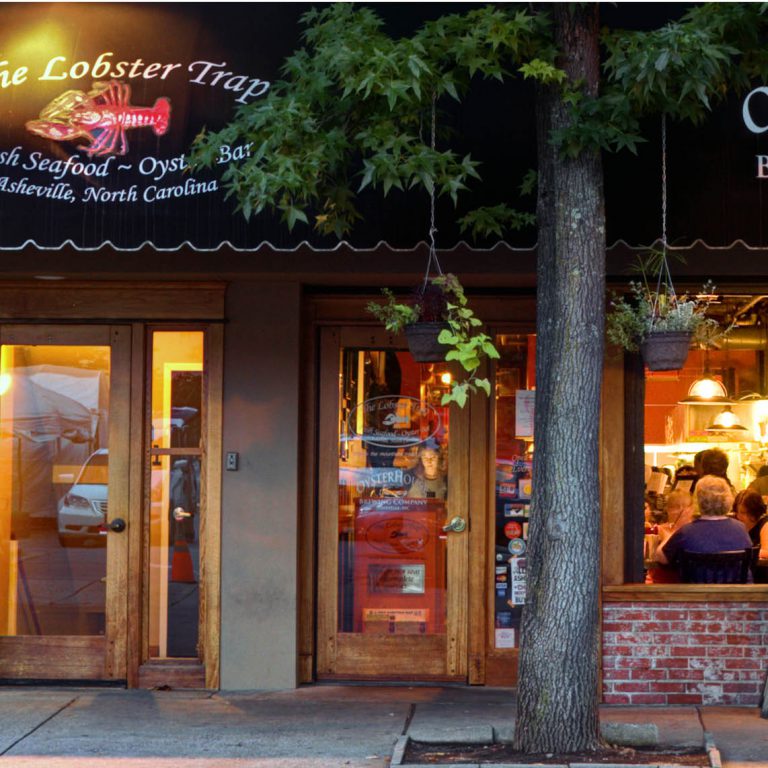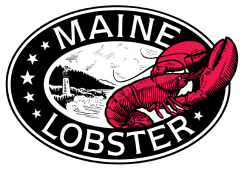Not long ago, I sat at my neighbor’s kitchen table. I’m often there, our kids are friends and run back and forth between our two houses seamlessly. She owns, in addition to the local bookstore here in Yarmouth, a restaurant called “The Lobster Trap” in Ashville, NC. The Lobster Trap had recently been selected as one of Coastal Living’s best seafood restaurants not on the coast. I knew Amy was from Cape Elizabeth, but the accolade got me curious, how did she start The Lobster Trap? And why in Ashville?
“I had the idea when I was originally working in software in California, but I was too busy to do anything about it,” Amy recalled. “When I opened The Lobster Trap, I was living in Ashville, and I had been teaching the year before. The kids were tough to handle – I knew I didn’t want to go back to that, so I opened the restaurant instead.” This information delivered with a knowing and rueful smile, as our kids clamored loudly in the background. The back story was that since leaving Maine after college, she had not been able to find good Maine lobster served ‘Maine style’ anywhere, and she thought people would appreciate an authentic Maine lobster dinner. This story reminded me of another Cape Elizabeth native I knew, Luke Holden, who had left the world of finance in New York to open Luke’s Lobster after spending an afternoon trying to find a half way decent (Maine style –chilled not warm) lobster roll in a city known for its food.

“When I first started the Lobster Trap,” Amy recalled, “I did it with my friend Tom (Martin), who is a lobsterman I grew up with in Cape Elizabeth. He was catching them, putting them on a US Air freight plane three times a week and shipping them down. I was driving to the airport to pick them up.” The Lobster Trap, Amy told me, was successful from the start, “people loved our Maine lobsters. Our customers, who come from all over, all have an emotional connection to Maine.” As The Lobster Trap became more and more popular, the quantity of lobster being shipped expanded. “It was a pain to go to the airport all the time, but it kept our connection to Maine,” Amy reflected. “But then US Air stopped its freight planes from Portland, and we had to find a different source.” Inland Seafood became their supplier.
The conversation got me thinking, how do we get our Maine lobsters all around the country, and the world. The old Maine adage (often said to out-of-staters asking directions of ‘locals’)“you can’t get they-ahh from hee-yahhhh”, popped into my head.

It’s one thing to know how good a Maine lobster is (whether steamed with butter or on a roll), but there was a reason these ex-pat Mainers hadn’t been able to find their beloved crustacean prepared fresh across the continent. Handling and shipping a live product isn’t an easy feat. I’ve spent enough time on a working wharf to know and understand the importance of handling lobsters. Sternmen are reminded constantly by their captains to treat lobsters with care, wharf workers are reminded not to haul crates by one end, which squashes the lobsters. Great care has to be taken handling the lobsters from the time they come up over the rail of a boat until they are crated and hauled off in a truck. Keeping lobsters alive and healthy at a wharf is one challenge, doing so once they leave the shore another altogether. And yet, in the past 10+ years, we’ve gotten very good at sharing our Maine lobsters not only with the rest of the country, but with the rest of the world.
So, how do we get our lobsters they-ahh from hee-yahhh? The truth is, as with everything else, the world of lobsters has become international. Maine can ship live lobsters by air to Beijing and Shanghai within 20 to 40 hours. This doesn’t mean it’s easy – it’s still a live product and when you go from domestic to international, you encounter a whole new set of challenges, even if you’re shipping processed lobster. “When we opened our first shack in Japan,” said Luke Holden “it was a learning curve for us, getting to know and understand the international regulations. But it’s been well worth it, it’s neat to see folks enjoying an authentic Maine-style lobster roll in Kobe or Omotesando, or any of our other Japanese shacks.”
